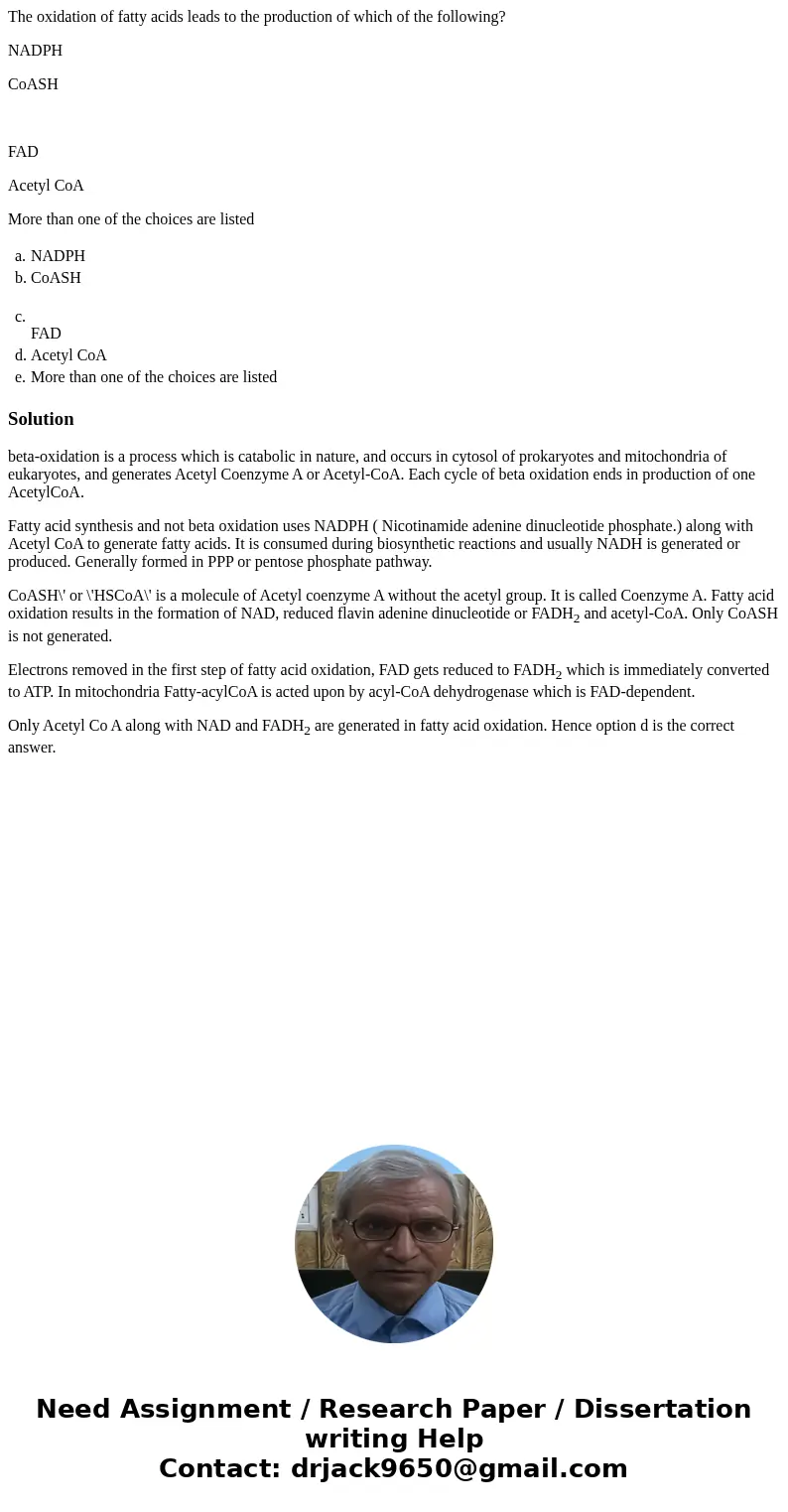The oxidation of fatty acids leads to the production of whic
The oxidation of fatty acids leads to the production of which of the following?
NADPH
CoASH
FAD
Acetyl CoA
More than one of the choices are listed
| a. | NADPH | |
| b. | CoASH | |
| c. |
FAD | |
| d. | Acetyl CoA | |
| e. | More than one of the choices are listed |
Solution
beta-oxidation is a process which is catabolic in nature, and occurs in cytosol of prokaryotes and mitochondria of eukaryotes, and generates Acetyl Coenzyme A or Acetyl-CoA. Each cycle of beta oxidation ends in production of one AcetylCoA.
Fatty acid synthesis and not beta oxidation uses NADPH ( Nicotinamide adenine dinucleotide phosphate.) along with Acetyl CoA to generate fatty acids. It is consumed during biosynthetic reactions and usually NADH is generated or produced. Generally formed in PPP or pentose phosphate pathway.
CoASH\' or \'HSCoA\' is a molecule of Acetyl coenzyme A without the acetyl group. It is called Coenzyme A. Fatty acid oxidation results in the formation of NAD, reduced flavin adenine dinucleotide or FADH2 and acetyl-CoA. Only CoASH is not generated.
Electrons removed in the first step of fatty acid oxidation, FAD gets reduced to FADH2 which is immediately converted to ATP. In mitochondria Fatty-acylCoA is acted upon by acyl-CoA dehydrogenase which is FAD-dependent.
Only Acetyl Co A along with NAD and FADH2 are generated in fatty acid oxidation. Hence option d is the correct answer.

 Homework Sourse
Homework Sourse